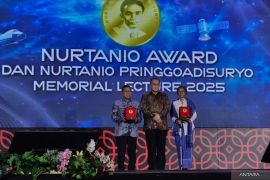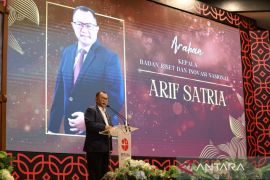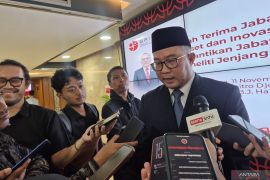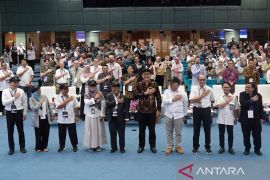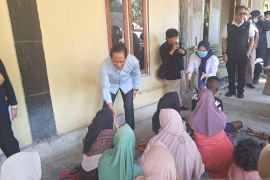This genetic modification enables the animal organ to be accepted by the human immune system, thereby preventing rejection of a foreign organ in the human body, he told ANTARA here on Thursday.
The surface of the pig's heart cell contains galactose-alpha-1,3-galactose (alpha-Gal) that is not present in the human body, he noted.
Hence, transplantation would not last, as the body's immune system rejects it. To this end, genetic modification of the pig's heart is necessary.
Genetic modification is conducted by removing three genes that reduce the risk of rejection by human antibodies.
Related news: People with heart disease should maintain diet during fasting
Moreover, the addition of six human genes promotes organ acceptance, while removal of one growth gene ensures that the organ expands after being transplanted.
This information is available in the article https://www.economist.com/science-and-technology/2022/01/11/the-first-successful-pig-to-human-heart-transplant-has-been-performed.
As per the report, a surgeon named Bartley P. Griffith led a team that managed to transplant a genetically modified pig heart into the body of David Bennet in Maryland, the United States, on Friday.
The operation was deemed a success since the 57-year-old patient's body did not reject the organ, with this achievement being the first of its kind in the field of medicine.
Despite this, doctors continue to monitor Bennet's condition.
Griffith has yet to provide his scientific publication on his success in transplanting a pig heart into the body of a human.
The crucial component behind the success of Maryland University's Xenotransplantation is that they work around the immune system problem through genetic modification, Sufiandi explained.
Related news: Eating more fish may cut young women`s heart disease risk
Translator: Martha S, Fadhli Ruhman
Editor: Suharto
Copyright © ANTARA 2022

